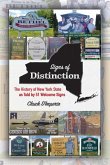As long as people have lived along Rhode Island's meandering coast, the ocean has provided them with a ready supply of food. Whether Native American or European transplants, fishermen sought to move beyond capturing individual fish to ensnaring entire schools. Searching for increasingly efficient ways to capture their prey, the trapping technologies that they invented evolved over time, and primitive stake traps gave way to fykes and weirs, much as they had along the entire New England coast. Fishermen from Rhode Island experimented with new designs capable of withstanding the punishing wind and waves, eventually creating a unique floating trap system. Today only four companies still use this ancient but effective technique. Author Markham Starr spent time on the docks, went to sea with the fishermen, and photographed them at work. His striking black-and-white images are accompanied by oral histories, poignantly documenting the industry. This book documents a tradition now hundreds of years old, the spirit and work ethic that drives these fishermen, and the austere beauty of working life on the coast.
Hinweis: Dieser Artikel kann nur an eine deutsche Lieferadresse ausgeliefert werden.
Hinweis: Dieser Artikel kann nur an eine deutsche Lieferadresse ausgeliefert werden.








